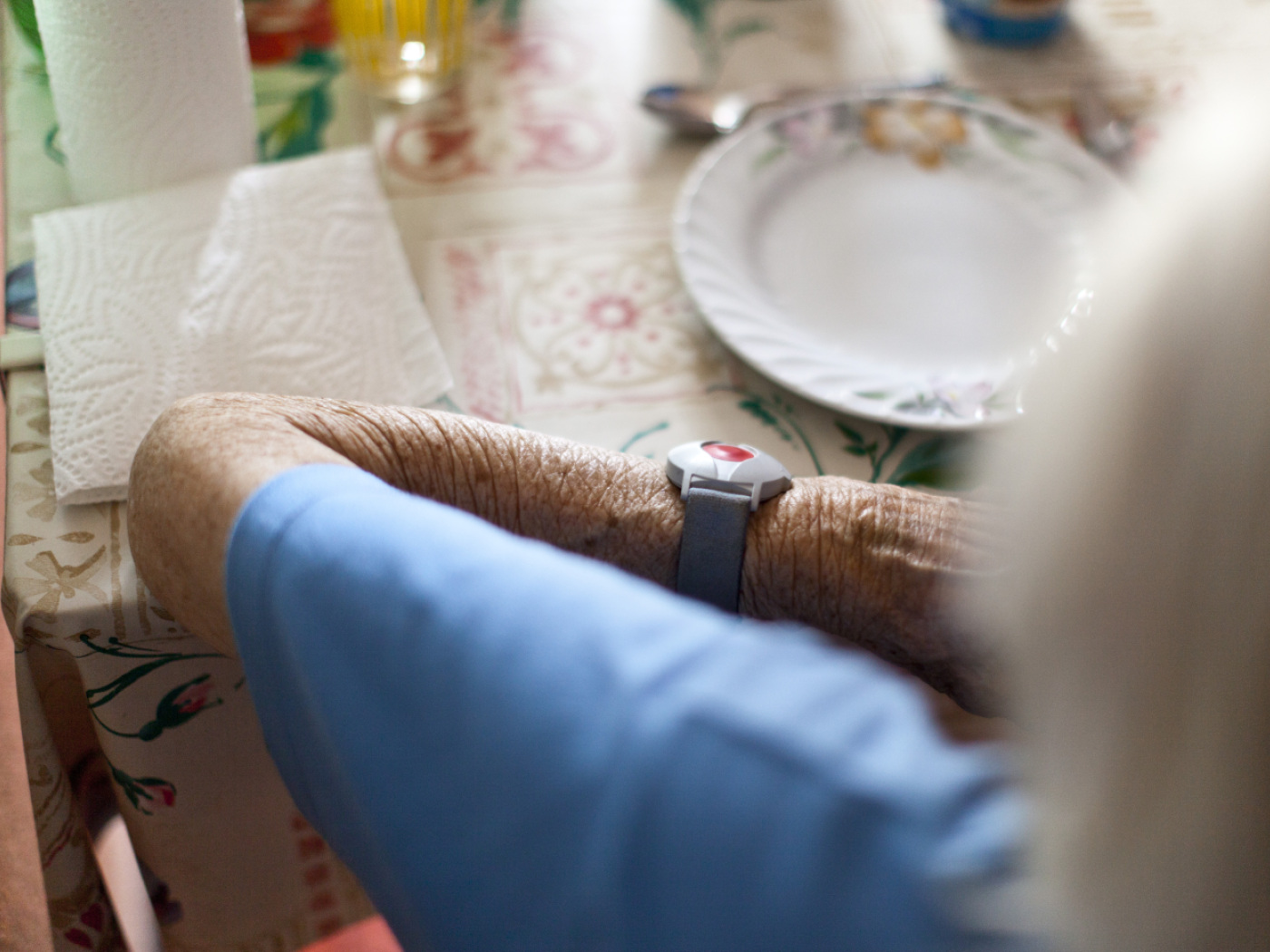
Swiss-US sensor gauges biological age from sweat

Scientists from Switzerland and the United States are developing sensors that can measure biological age based on molecules in sweat.
+Get the most important news from Switzerland in your inbox
The aim is to develop a kind of ‘age clock’ that continuously provides data on the physiological state of the body, the Swiss Federal Laboratories for Materials Science and Technology (Empa) announced on Thursday. In addition to Empa, ETH Zurich, the University Hospital Basel and the California Institute of Technology (Caltech) are also involved in the research project called Age Resist.
+ How Switzerland became a longevity hotspot
According to Empa, ageing is a biological phenomenon that is still poorly understood. However, it is known that fitness and susceptibility to certain diseases change over the course of a person’s life – and that medical treatments need to be better tailored to the individual condition of the body.
The chronological age, measured in years of life, says only a limited amount about the actual physical condition.
Fewer risks and side effects
Until now, biological age has mostly been determined by analysing blood samples in the laboratory, which is time-consuming and not suitable for long-term use.
According to the researchers, however, the approach using so-called biomarkers, which are measured in sweat, and wearable sensors promises a simple and continuous procedure that could also be used in everyday life.
According to the researchers, such an age watch could not only measure individual resilience and stress resistance, but also help to ensure that medical treatments are adapted to the patient’s respective condition. Side effects and risks could thus be reduced.
Study participants are currently still being sought for the clinical testing of the technology. The research project is funded by the Swiss National Science Foundation (SNSF).
More
Translated from German by DeepL/mga
We select the most relevant news for an international audience and use automatic translation tools to translate them into English. A journalist then reviews the translation for clarity and accuracy before publication.
Providing you with automatically translated news gives us the time to write more in-depth articles. The news stories we select have been written and carefully fact-checked by an external editorial team from news agencies such as Bloomberg or Keystone.
If you have any questions about how we work, write to us at english@swissinfo.ch

In compliance with the JTI standards
More: SWI swissinfo.ch certified by the Journalism Trust Initiative


























You can find an overview of ongoing debates with our journalists here . Please join us!
If you want to start a conversation about a topic raised in this article or want to report factual errors, email us at english@swissinfo.ch.